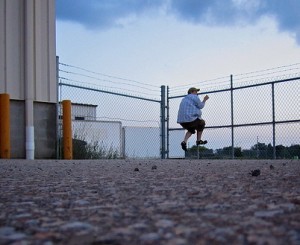Rules are important in any civilized society. Without them, chaos would ensue. But some rules are worth questioning, especially when the consequences negate their very purpose.
Teachers are grappling with how to address regulations they consider unnecessary at best and harmful at worst. There's no question that helpful guidelines can and should be put in place surrounding all of these issues, considering the privacy of both teachers and students. It's the outright banning that seems extreme, especially when many of these examples can be used in rich, educational contexts. The metaphor of throwing the baby out with the bathwater is most apropos in these scenarios.
- FACEBOOK. As we've been hearing for the past few weeks, Missouri has banned teachers from using Facebook (and other social media) to communicate with students. A couple of days ago, Wired reported that "a union representing 44,000 Missouri public school teachers is challenging a state law that dramatically restricts their online speech with current and former students. The lawsuit targets the legislation as a First Amendment breach." Meanwhile, in many cases, teachers have found lots of ways to use Facebook in the classroom.
- TWITTER. Teachers are banned from using Twitter in schools in Pinellas County, Florida. “I don’t know what information is being transmitted,” said school board attorney Jim Robinson of private communication with students in a Patch.com article. But couldn't that be said of any kind of communication, including simple conversation? An article in the U.K.'s Guardian reports that teachers have been banned from using Twitter after one teacher's controversial public post. In response, a teacher wrote: "Wouldn't you love to live in a place where public workers aren't allowed to express personal opinion? You now have the choice of China or Argyll, it seems." Meanwhile, teachers continue to find creative ways for using Twitter in school.
- CELL PHONES FOR TEACHERS. We've written about cell phone bans and heard from a number of educators who express their frustrations as their individual schools try to figure out how or whether to allow students to use them. But it turns out that some schools are also banning teachers from using their own mobile phones. On Scholastic's Practical Leadership blog, a teacher wrote in to say that "to 'set a good example,' our principal has decided that teachers shouldn’t use [cell phones] either.
- YOUTUBE, SKYPE, NATIONAL GEOGRAPHIC, AND MANY OTHER WEBSITES. Schools unilaterally block a long list of sites (read "Eight Surprising Websites Schools Can't Access") under the guise of different federal laws that are meant to protect kids. But even the Department of Education's Karen Cator counters with useful facts that support unblocking many of these educational sites (read "Straight from the DOE: Dispelling Myths About Blocked Sites.)"
As technologies evolve, so will school rules that define the best ways of using them. In the meantime, many teachers are flouting policy and taking it upon themselves to decide what's best for their students and for their teaching practice.


